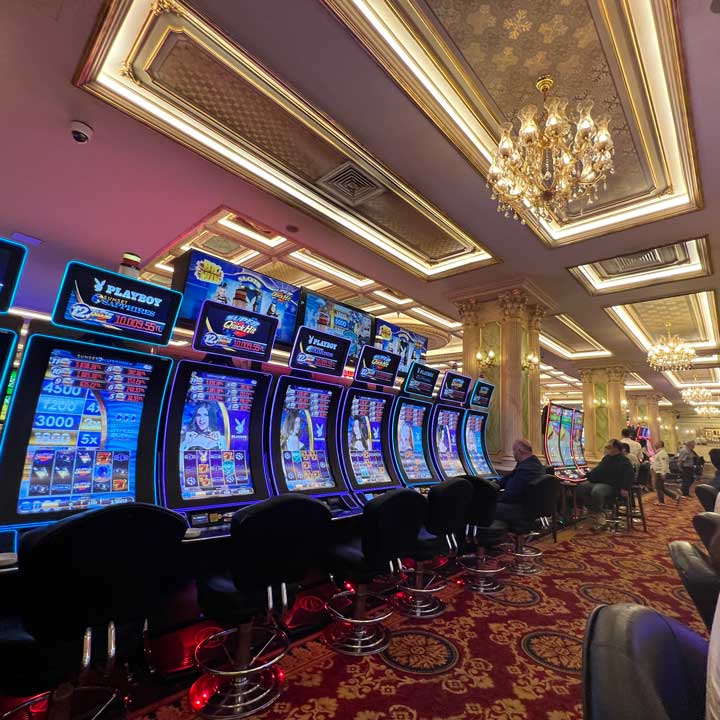Casino News: Latest Developments in Game Regulations

The realm of gambling games is constantly transforming, shaped by changing laws, technological progress, and evolving market demands. While governments and gaming commissions strive to create a secure and just space for gamblers, the landscape of gambling laws is undergoing significant modifications. Understanding these developments is important for both sides of casino operators and players looking to explore the thrilling yet complicated world of gaming.
Recently, multiple jurisdictions have suggested and implemented new regulations designed to enhancing the protection of players while encouraging safe gambling. These changes not only affect the types of casino games offered but also how they are advertised and accessed. In this article, we will examine the most recent regulation changes, their implications for the gambling sector, and what players can look forward to as they interact with their preferred casino games.
Revised Governance Structures
Recent trends in gambling regulations are shaping the direction of gaming entertainment across different areas. Authorities are acknowledging the need for a strong oversight framework that not just shields players while also guarantees fair gaming and sensible gaming. These systems are designed to address issues such as online gaming, virtual currencies, and innovations in technology, reflecting the changing landscape of the casino field.
One major change is the adoption of stricter policies regarding transparency and consumer safety. Casinos are now mandated to disclose clear data on odds, payout rates, and the potential dangers related to betting. This shift aims to enable players by allowing them make educated judgments while also helping to fight gambling problems through sensible gaming measures. Casino owners are required to set up self-restriction programs and offer support for individuals seeking aid.
Additionally, emerging regulations are being implemented to new innovations such as VR and blockchain in gambling games. Oversight bodies are crafting guidelines to assure that these advancements maintain integrity and fairness while also safeguarding player data. As the industry progresses, regulators are modifying to confirm that innovations enrich the gambling environment while protecting both players and entities.
Effect on Game Diversity
The recent changes in gaming policies have created fresh avenues for casino games, allowing for increased breakthroughs and difference within the industry. As oversight agencies update their criteria, developers are motivated to create unique gaming experiences that appeal to a wider demographic. This has resulted in a diverse array of innovative games, incorporating various concepts, genres, and systems that were historically neglected or constrained by more rigid rules.
With a less rigid regulatory environment, gambling venues are now able to try out alternative game formats, including skill-focused games and interactive experiences. This change has led to a rise in hybrid games that mix classic gambling features with modern gaming trends, such as electronic gaming and AR. By broadening the types of games available, casinos can attract not only veteran players but also casual players who may prefer alternative choices.
Furthermore, the evolution of standards has emphasized clarity and justice in games, which could foster greater player confidence. As a result, consumers are more open to consider a wider variety of gaming experiences, knowing they are interacting with sites that adhere to updated standards. This growing confidence enhances player participation and can ultimately boost revenue growth as more varied selections address different interests and groups in the casino sphere.
Future Trends in Regulation
As the gambling landscape develops, oversight bodies are progressively focused on adopting digital solutions to enhance openness and justice. The incorporation of blockchain technology into gambling games is expected to gain ground, allowing for increased oversight of operations and ensuring that activities remain just and tamper-proof. This change could lead to a compliance framework that accepts these improvements, promoting faith among gamblers and providers alike.
In addition to technological incorporation, there will likely be a tighter emphasis on responsible gaming strategies within the regulatory environment. casino non AAMS Authorities are anticipated to implement more stringent measures to promote gambler protection, including required self-exclusion systems and strong age verification mechanisms. This change aims to safeguard at-risk populations while ensuring that the pleasure of casino games is maintained for prudent gamblers.
Lastly, as digital gaming continues to grow globally, standardization of regulations across different regions will become a pressing need. Countries may seek to partner more closely on unified standards for permits, operation, and taxation. This could lead to a more streamlined regulatory system for global operators, fostering a greater acceptance of online gaming games while maintaining robust of participant protection and honesty in the gaming industry.
